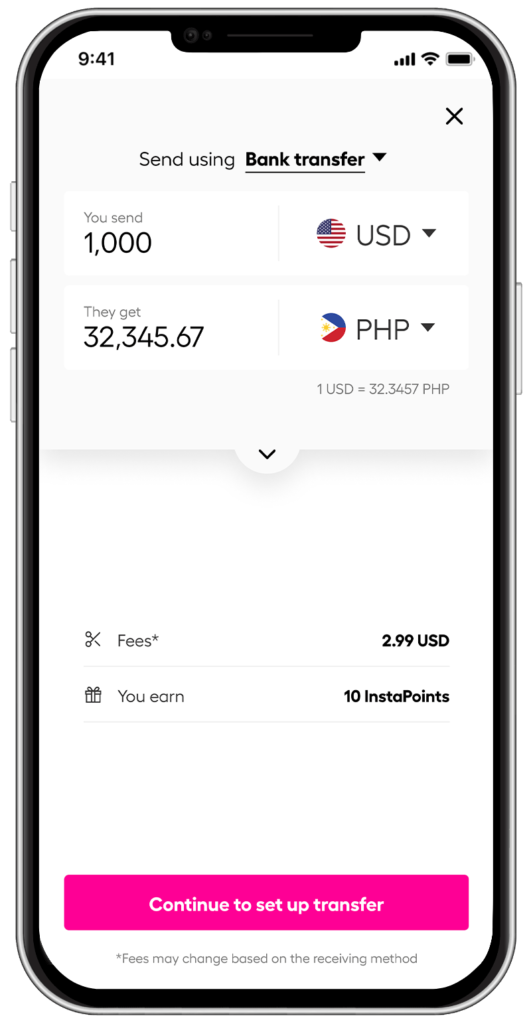10 tips to avoid job scams as an aspiring expat

This article covers:
- Research the company
- Verify job offers and check company contact information
- Snoop LinkedIn and other professional networks
- Verify recruitment agencies
- Badly written email communication
- Request for personal information
- Unprofessional job interviews
- Upfront payments
- Check the contract and legal requirements
- If something seems too good to be true, it probably isn’t real
- Before you go…
Gone are the days when it was just the mythical Nigerian prince promising you lottery winnings in your inbox. Scams have evolved big time, and nowadays, they’re much trickier to spot. If you’re an expat or considering becoming one and on the hunt for a job abroad, things can get even murkier. You’ve got job interviews to ace, work visas to secure, and rent to pay – all of which could make you an easy target for scammers. Nobody wants their hard-earned cash to end up lining a scammer’s pockets, right?
So, in this blog, we’ll arm you with some savvy tips to dodge those job scams and keep your money where it belongs – with you!
Research the company
It’s crucial to do your homework on the company you’re hoping to work for. Seek out their official website, verify their contact details, and check if they have a physical address. Remember, any legit business needs to be registered for tax and other governmental purposes. If the company or its website was set up just recently, that could be a red flag.
Even if the company is a well-known name, don’t let your guard down. Make sure you’re on their actual website and not a fake one. Scammers these days can create mirror sites with deceptive URLs. You might be inclined to click on the first link that pops up in your search results, but bear in mind: if a company is legitimate, they won’t need to shell out for search ads to appear at the top of your search result.
Another smart move is to scrutinise online reviews and testimonials from current or past employees. Sure, feedback can vary widely. But having some insight is far better than going blind. So, dig deep and get the scoop on the company before taking the plunge!
Verify job offers and check company contact information
When job markets are tough, we tend to apply to a bunch of positions and sometimes forget where we’ve sent our resumes. Suddenly, you get a text out of the blue saying you’ve landed a job or they want to schedule an interview. Sounds great, but hold on a second…
If you’re scratching your head trying to remember whether you even applied for this job, or if the offer seems too good to be true, it’s time to put on your detective hat. Some red flags to watch for include getting hired without applying or interviewing, lack of information, or being contacted via chat apps. Real jobs just don’t operate this way.
Keep in mind, no reputable company conducts interviews over text. If they say “you’re hired” before even interviewing you, that’s a clear sign of a scam. And they certainly shouldn’t ask you to download a third-party messaging app, especially when they’ve already contacted you directly.
So, what should you do? Reach out to the company through their official contact channels to verify the job offer. It’s always better to be safe than sorry! Also, check the number that contacted you. If the country code or area code seems off, that’s another warning sign.
Remember, if a company is truly interested in interviewing you, they’ll typically reach out via an official company email, complete with actual contact details. And by ‘official email’, we don’t mean the recruiter’s personal Gmail or some wacky temporary email account. Keep your eyes peeled for those professional email addresses!
Snoop LinkedIn and other professional networks
It’s a smart move to scope out a job and its recruiter on professional networking sites like LinkedIn. Legit companies and recruiters usually have a solid online presence.
Sure, you might think, “Well, can’t scammers just whip up a LinkedIn profile too?” That’s true, but what we’re looking for here is consistency. Let’s say you’re applying for a job in Australia, but your recruiter or HR manager seems to be based in a totally different country, or their work history is all over the place, or they don’t even seem to be in the same field as you – these could be signs of a fake.
Scammers might even go as far as creating duplicate accounts that look like real users to appear more credible. But remember, if something looks too good to be true, it probably is. So, stay sharp and trust your instincts.
Verify recruitment agencies
You might be thinking, “What if I have to go through a recruitment agency?” Well, that’s a great point! If you find yourself dealing with an agency, make sure you do your homework on them first. Check out their reputation and authenticity. And watch out for any agencies that ask for big bucks upfront. Any fees should be sorted out with the company that’s hiring, not you, the potential new employee.
Badly written email communication
Hey, remember that Nigerian Prince we chatted about earlier? Ever wondered why his emails are a hot mess of spelling and grammar mistakes? It’s actually a crafty strategy. Scammers who can’t spell to save their lives often sneak past spam filters more easily than those who write perfectly.
Let’s face it, most of us don’t exactly pen flawless emails every time. But if an email is so poorly written that it makes your eyes hurt, it could be a scam. And if you fail to spot the glaring mistakes, you might just find yourself parting with your cash.
So, keep your guard up when you come across emails riddled with errors or inconsistent info. Real companies usually use official email addresses that end with their company domain. Stay safe out there!
Request for personal information
Just a friendly reminder: be super careful about giving out personal info like your bank details or your social security number, especially before you’ve had a chance to check out if the employer is authentic. Most companies only ask for this kind of info after you’ve officially joined their team. And let’s be real, no company is going to ask their employees how often they want to get paid. We all know that payday comes at the same time and in the same way for everyone.
And watch out for those sneaky scammers who might ask you to download a specific banking app or set up a new bank account and then share the details with them. Those are some serious red flags. Before you know it, you could end up being an unwitting accomplice in their scammy schemes. So, stay alert!
Unprofessional job interviews
Have you noticed how the pandemic has totally flipped job interviews on their head? A lot of them are happening over calls or apps like Zoom, Google Meetings, and so on. And let’s be honest, if you’re hoping to work abroad, it doesn’t really make sense to shell out for a plane ticket just for an interview.
But here’s the thing: you’ve got to be extra careful if an interview is only conducted through messaging apps or if they seem overly interested in your personal info. Real-deal employers usually stick to official channels for interviews and keep the conversation focused on job-related stuff. And yes, even with remote interviews, there are ways to check if it’s all above board.
Legit employers will want to know about your skills and experience. They’ll ask questions that relate directly to the job. And remember, you should feel free to ask questions too! Health benefits, turnover rates, workplace culture – anything that matters to you.
But here’s the big red flag: if the only ‘interview’ you get is via text or email, that’s your cue to make a quick exit. Sure, some sneaky scammers might stage an online interview. But if they do most of the talking and don’t really dig into your skills, that’s suspicious. And if you find yourself with a ‘job offer’ less than 30 minutes into the ‘interview’, that’s not just a red flag, it’s practically a flashing neon sign saying, ‘scam alert’!
Upfront payments
Be wary of job offers that want you to cough up cash upfront for things like visas, work permits, or other processing fees. Real employers typically either foot the bill for these costs or take them out of your paycheque.
And let’s say a company hires you on a Monday, then by Tuesday morning they’re waving a large amount of cheque at you to buy home office supplies. Or, they might even ask you to pay for these supplies out of your own pocket before they give you anything. Either way, these are huge red flags. So keep your eyes open and your wallet closed until you’re sure it’s legit!
Check the contract and legal requirements
Before you put that pen to paper and sign an employment contract, make sure you’ve given it a good once-over. Check that everything’s crystal clear and there aren’t any sneaky little clauses hiding in the fine print. It’s a good idea to get clued up on what the law says about working in the country you’ll be based in. If something in the job offer doesn’t align with standard practices there, that’s a warning sign. Like, if your job as a sales manager involves cold calling, but that’s not allowed in that country, then that’s a big red flag.
And remember, you don’t have to be a legal whiz to get this right. You can always pop into a free legal clinic or chat with a legal pro. They usually won’t charge for the first hour, so you can get some solid advice without breaking the bank.
If something seems too good to be true, it probably isn’t real
There are some not-so-nice folks out there who might try to take advantage of expats looking for work. But don’t worry, you’ve got this! Just stay alert, do your homework, and double-check everything. That’ll help keep you safe from any job scams lurking in the shadows.
Trust your gut. If a job offer gives you the heebie-jeebies or you’re not quite sure if it’s real, it’s best to err on the side of caution.
Keep an eye out for warning signs. If a job promises a hefty paycheque for little work, has a vague job description, or the communication just doesn’t seem professional, it could be a scam.
Don’t hesitate to get a second opinion. Reach out to expat groups, hit up online forums, or even check with local authorities to get more info about the company or job offer.
And remember, when we’re desperate, we tend to throw logic out the window. Desperation is a powerful emotion and it can really cloud our judgement, making it tough to tell right from wrong. So take a breath, step back, and make sure you’re thinking clearly before you jump into anything.
Before you go…
As a newbie expat, it’s important to watch out for potential job scams while getting settled in a brand-new country. But once you’ve got the lay of the land and are ready, it’s time to send money abroad. You will need a trustworthy and efficient service to ensure that your hard-earned money gets to where it needs to be.
Luckily, with Instarem, you can rest easy knowing that you’re getting great rates and low fees when sending money to over 60+ countries.
And the cherry on top? Instarem keeps you in the loop with transaction timelines so you’ll always know exactly where your money is. So, whether you’re sending money back to family or paying off student loans, let Instarem be your go-to for seamless and secure transfers.

*rates are for display purposes only.
Try Instarem for your next transfer.
Download the app or sign up here.
*Disclaimer: This article is intended for informational purposes only. All details are accurate at the time of publishing. Instarem has no affiliation or relationship with products or vendors mentioned.
 Get the app
Get the app


























